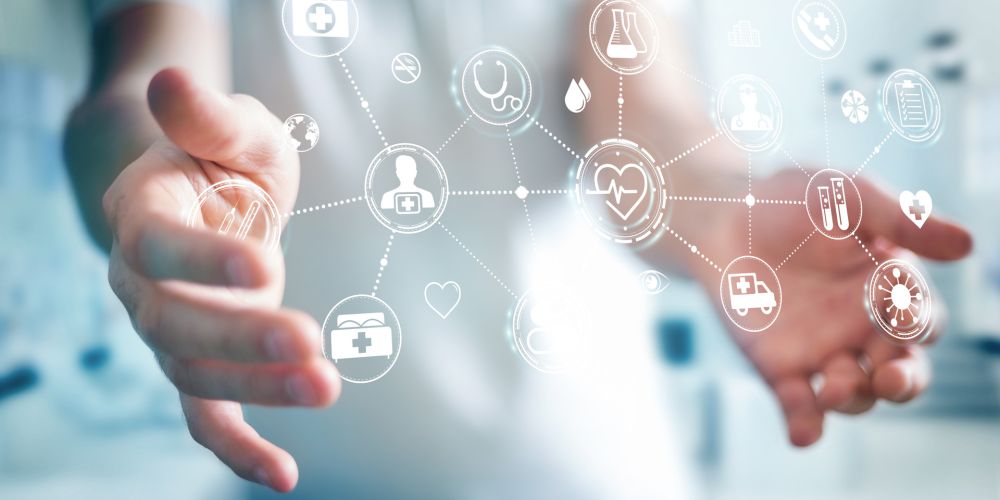Products & Technology
Solutions
-
By Vertical
-
By Role
Top 6 Use Cases of Generative AI in Healthcare
The healthcare industry stands at a pivotal point, propelled by the rising influence of artificial intelligence.Among the most promising advancements lies Generative AI, capable of generating unique data through powerful algorithms.
13 February 2024

This technology promises to fundamentally reshape how we deliver, manage, and experience healthcare across the board. Let's explore six specific use cases that showcase the groundbreaking potential of Generative AI in healthcare:
1
GPT-Point Solutions for Policy Parity
Complex insurance policies and benefit structures often leave patients and providers confused, hindering access to vital care. GPT-point solutions, powered by Generative Pre-trained Transformers (GPTs), can bridge this gap by translating opaque policy language into clear, easy-to-understand summaries. This empowers patients to make informed decisions, navigate coverage options, and ensure they receive the necessary care.
2
Automated Claim Processing
Manual claim processing is notoriously slow and error-prone, leading to frustration for patients and providers alike. Generative AI steps in with automated claim processing solutions.These systems leverage deep learning algorithms to analyze claims accurately and efficiently, automating routine tasks and significantly reducing processing time. This streamlines the system, saves costs, and ensures faster reimbursement for both patients and providers.
3
AI-Driven Care Discovery
Navigating complex healthcare choices can be overwhelming for patients.Generative AI-powered platforms like Prodoc AI Discovery offer a solution. By analyzing patients' medical reports or descriptions of concerns, these platforms provide AI-driven insights, personalized recommendations for doctors, hospitals, and even treatment plans based on real-world patient data. This empowers patients to make informed decisions and take control of their health journey.
4
Drug Discovery and Development
With its ability to analyze vast datasets and identify patterns,Generative AI can significantly accelerate drug discovery. AI models can design new drug molecules, predict their potential efficacy and safety, and even optimize clinical trials. This not only speeds up the development of new drugs but also reduces costs and increases the success rate of bringing lifesaving treatments to patients faster.
5
Medical Imaging Analysis
Deep learning algorithms trained on vast datasets of medical images can surpass human accuracy in tasks like identifying tumors, diagnosing diseases, and predicting clinical outcomes. This not only speeds up diagnoses but also reduces the risk of human error, potentially saving lives.
6
Virtual Assistants and Companions
Chatbots powered by Generative AI can act as virtual assistants for patients and healthcare providers. These assistants can answer questions about medical conditions, manage appointments, provide emotional support, and even monitor patient health data. This frees up valuable time for healthcare professionals and empowers patients to be more actively involved in their own care.
The future of healthcare is increasingly intertwined with the transformative potential of Generative AI. As technology continues to evolve, we can expect even more innovative applications that push the boundaries of what's possible, ultimately leading to a future where healthcare is personalized, efficient, and accessible to all.
Prodoc, an innovative AI Health-Tech startup, is dedicated to revolutionizing healthcare through a streamlined, data-driven approach. Utilizing AI technology, Prodoc develops systems that optimize insurance processes, support care providers, and facilitate seamless collaboration among all stakeholders in the healthcare ecosystem.
Products & Technology
Solutions
-
By Vertical
-
By Role
© Prodoc. All rights reserved.
